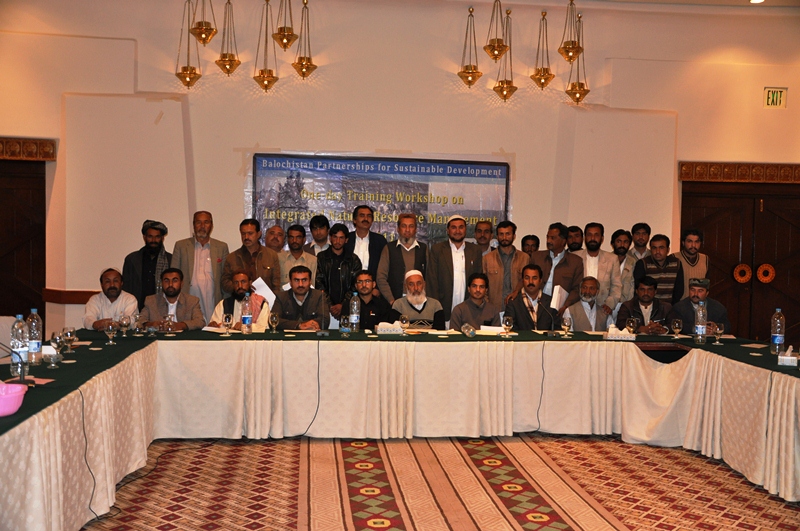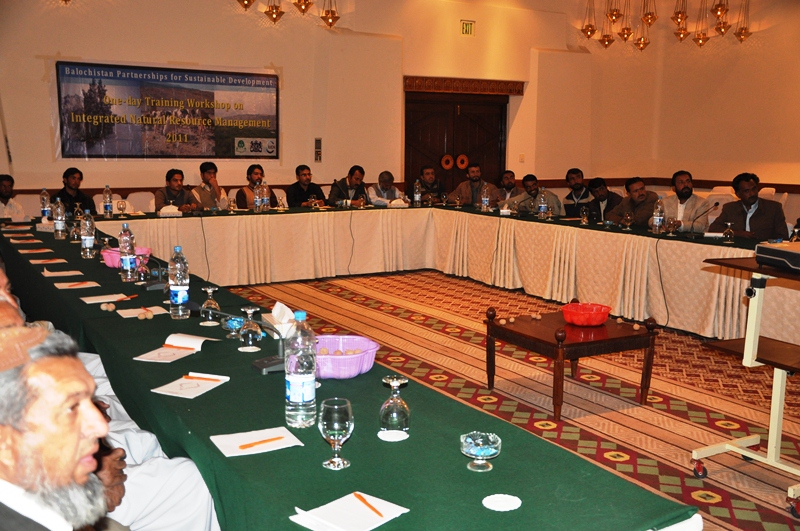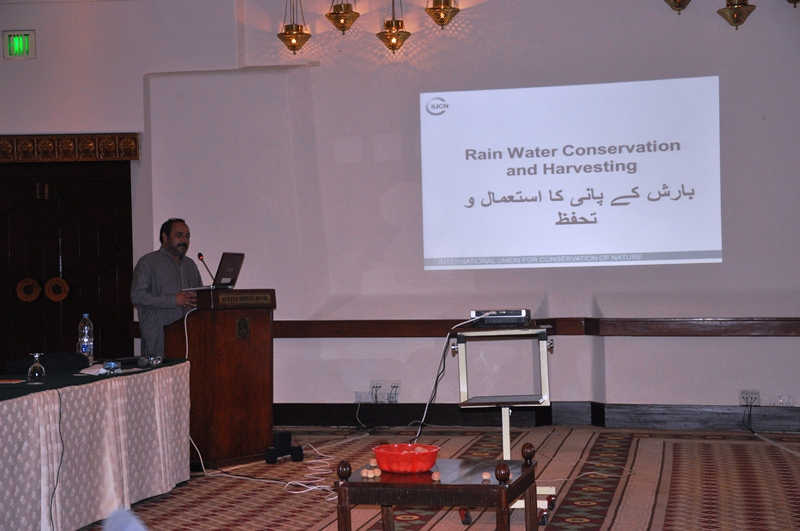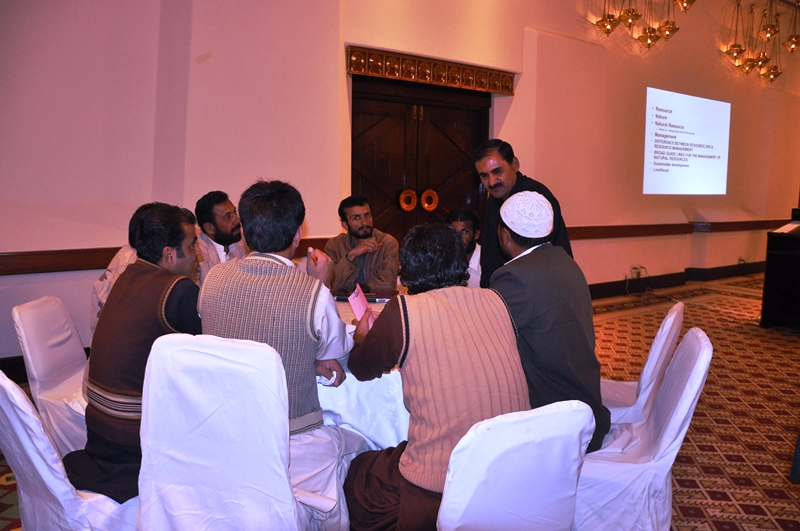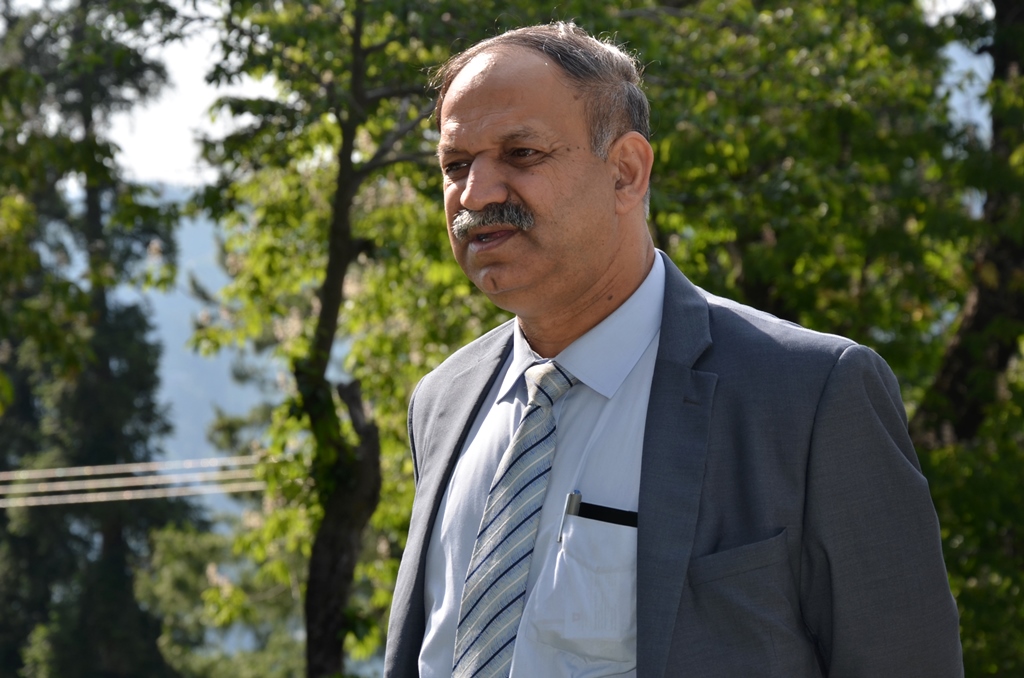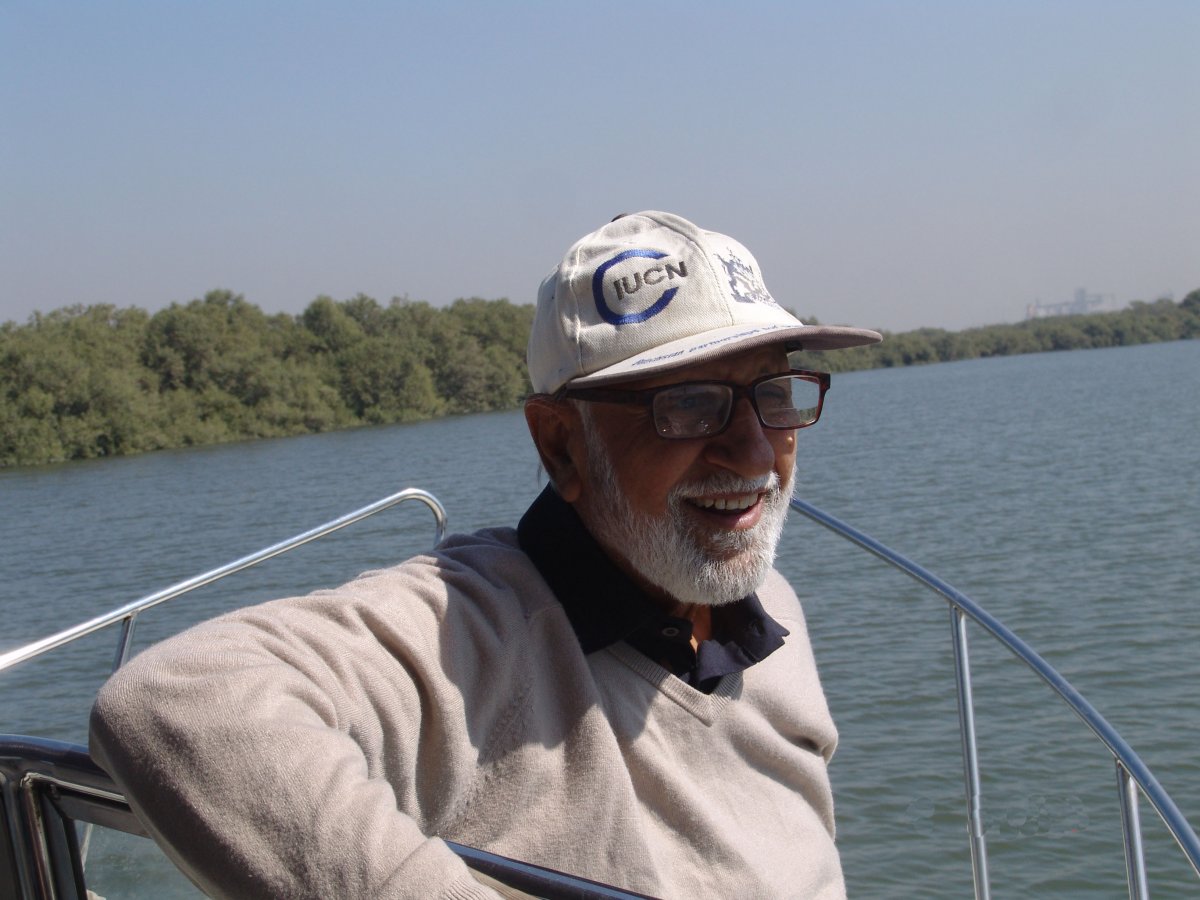One day Training Workshop on “Nature Resource Management and Rain Water harvesting”
IUCN’s Baluchistan Partnerships for Sustainable Development Project organized a one-day training workshop on Sustainable Natural Resource Management in Quetta.
The training called upon 40 main stakeholders from Government’s relevant departments, civil societies and main stakeholders from the districts of Mastung, Quetta and Ziarat.
Mr. Inam Ullah Khan, NRM expert and Project Manager at IUCN’s Juniper project in Ziarat, emphasized that sustainable agriculture and natural resource management activities seek to increase agricultural productivity by preserving long-term ecological and biological integrity of natural resources. “Rural, social, and environmental aspects of natural resource management are important to sustain significant increases in farm productivity through the efficient use of land and other resources”, he added. He also talked about biodiversity conservation and its value in the natural resource management.
Mr. Irfan Ali Bakhtiari, Coordinator Integrated Water resource Management delivered a session on IWRM through rain water harvesting. He explained how rainwater harvesting could be used to accumulate and harvest rainwater for reuse before it reaches the aquifer. Water saved through these sources can provide drinking water, water for livestock, water for irrigation as well as other typical uses. Rainwater collected from the roofs of the houses and other buildings can make an important contribution towards drinking water. It can supplement the subsoil water level and increase urban greenery. Water collected from the ground sometimes from areas that are especially prepared for this purpose is called Storm Water Harvesting.
He emphasized that IWRM is a systematic process for sustainable development, allocation and monitoring of water resource use in the context of social, economic and environmental objectives. He also mentioned that IWRM is based on the understanding that water resources are an integral component of the ecosystem, a natural resource and a social and economic good. The need for water is universal. It is present everywhere and without water, life, as we know it, will simply cease to exist.
Mr.Irfan Ali Bakhtiyari thanked the participants and distributed certificates towards the end of the workshop.
For more information
Zabardast Khan Bangash, Manager IUCN Balochistan Programme,
IUCN (International Union for Conservation of Nature)
Quetta Phone: +92 8128240450-2, Fax: +92 812820706
Email: zabardast.bangash@iucn.org
About IUCN
The world’s oldest and largest global environment network, IUCN, International Union for Conservation of Nature, envisions a just world that values and conserves nature. IUCN helps the world find pragmatic solutions to our most pressing environment and developmental challenges. It supports scientific research, manages field projects all over the world and brings governments, non-government organizations, United Nations agencies, companies and local communities together to develop and implement policy, laws and best practice. The Union’s headquarters are located in Gland, Switzerland.
IUCN Pakistan is part of the IUCN’s Asia Regional Programme based in Bangkok, Thailand. Established in 1985 to assist in the preparation of Pakistan’s National Conservation Strategy, IUCN Pakistan has grown to become the largest country programme of IUCN. Together with its partners and members, it is implementing several conservation initiatives across the country through institutional strengthening, policy advocacy and field work. Currently there are 27 active members of IUCN in Pakistan, including the Government of Pakistan as the state member, six government agencies and 20 NGOs. Over 100 volunteers from Pakistan work in IUCN’s six specialised commissions.
